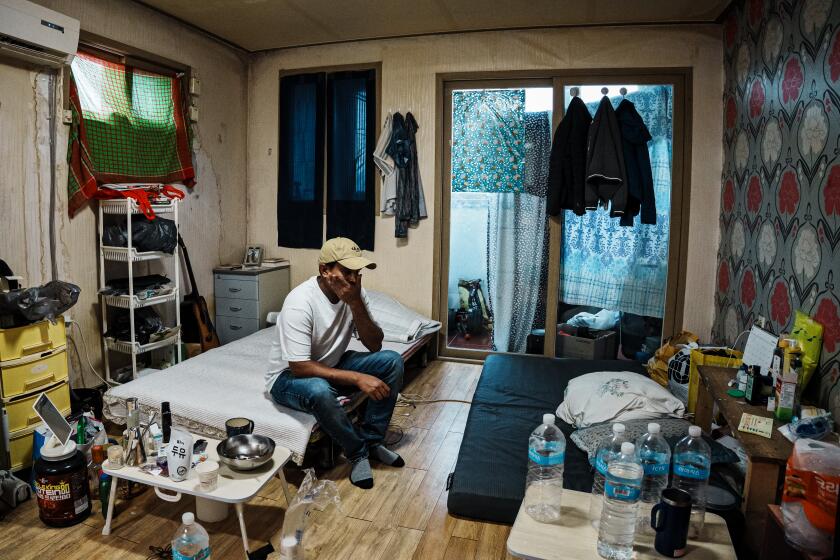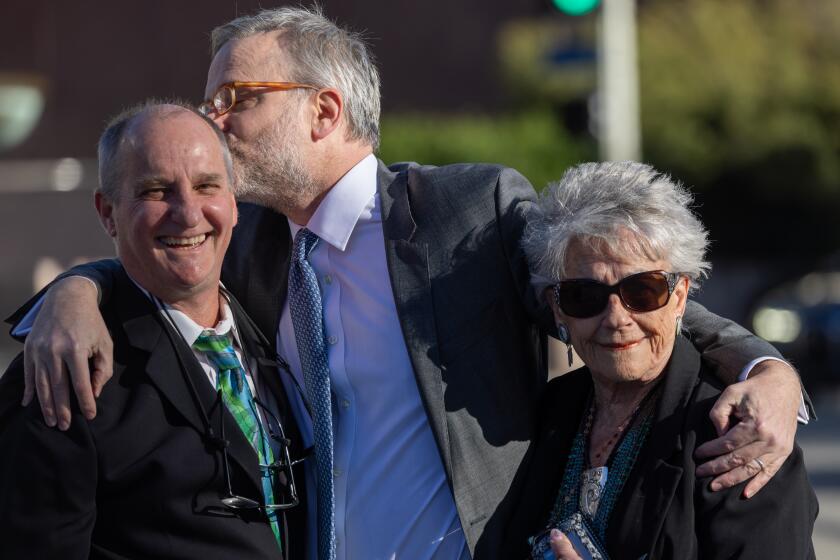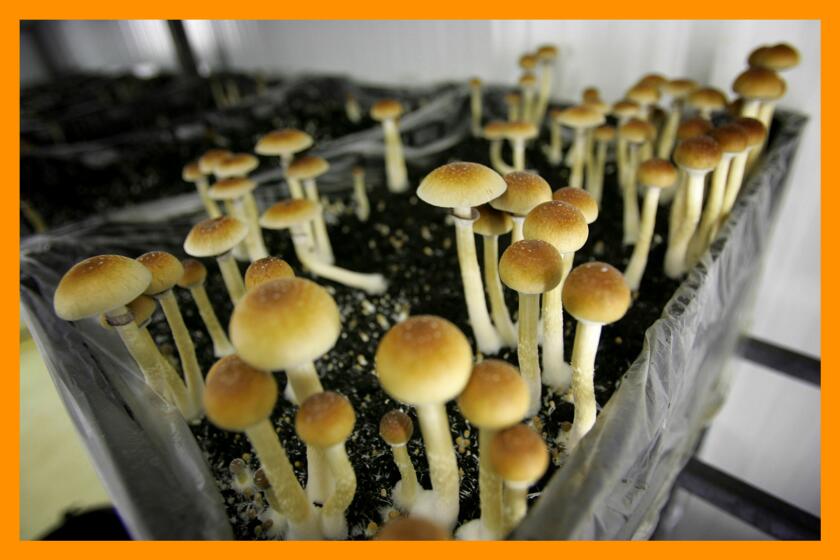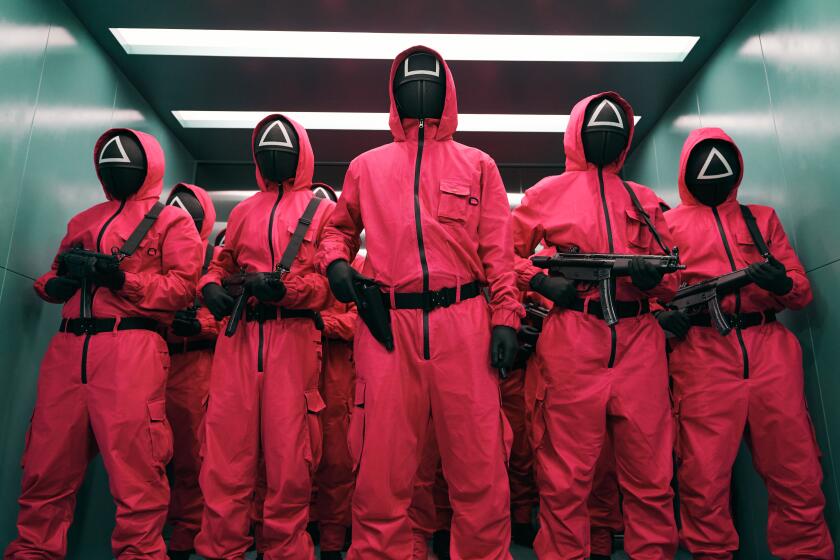A movie star, a suicide and a nation’s war on drugs
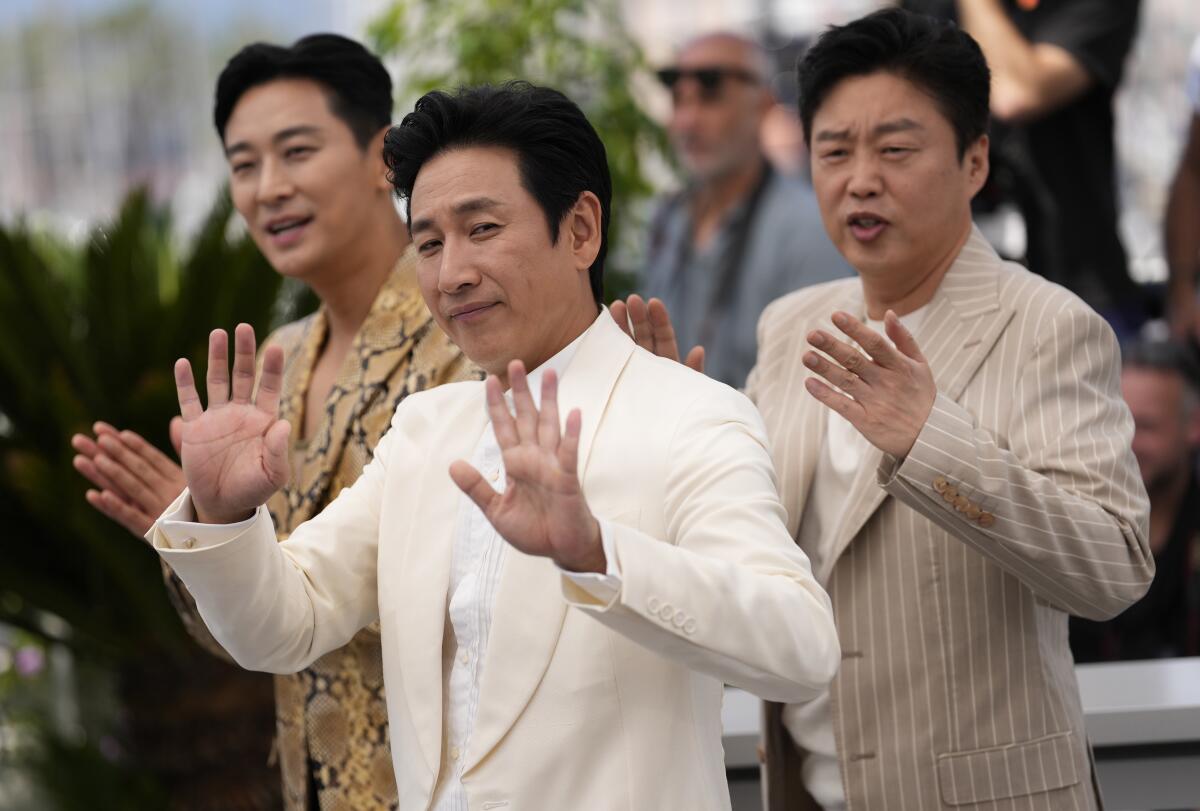
- Share via
SEOUL — South Korean actor Lee Sun-kyun learned he was being investigated for illegal drug use after reading about it in the news.
The story that leaked to the South Korean news media was that detectives from the city of Incheon were acting on a tip that Lee had taken ketamine and marijuana.
Best known for his role as a haughty tech executive in the Oscar-winning 2019 dark comedy “Parasite,” Lee was one of the country’s biggest movie stars. He had lead roles in two of the seven Korean films screened in May at the Cannes Film Festival.
South Korea has some of the harshest drug laws in the world, and recreational use has long been dealt with as a criminal matter rather than a public health issue. The police investigation was opened in October amid a renewed crackdown, and authorities seemed determined to make an example out of Lee.
As South Korea’s migrant labor program ramps up recruitment, it faces scrutiny for what critics say is a failure to guarantee safe working conditions.
He was paraded in front of reporters, drug-tested four times and once interrogated for 19 hours straight. Salacious personal details, leaked to the media, formed a pulpy narrative of a beloved star whose deviant private life was finally being unmasked.
Lee, 48, maintained his innocence. But on Dec. 27, after Lee went missing, police found him dead in his car at a park in Seoul in an apparent suicide.
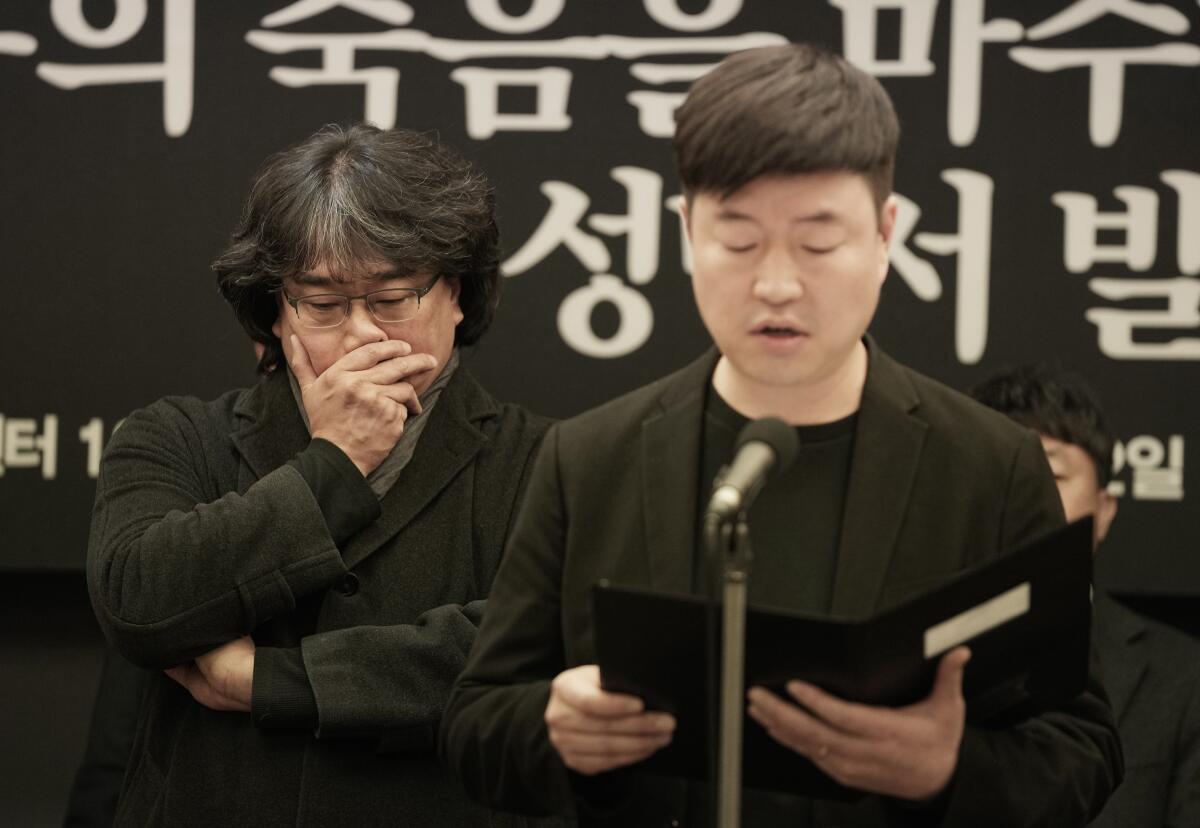
His death unleashed a swell of criticism that overzealous investigators and the media had turned Lee into a victim of what Jang Won-seok, a film producer and longtime friend of the actor, described as “a character assassination that pushed him to the absolute bottom.”
Fewer are questioning the way drug users are demonized in South Korea, a mind-set stoked by decades of government rhetoric and hard-line policy.
“The public sees drug use as a ‘social evil,’” Jang said. “Of the many scandals that a celebrity can suffer, drugs are among the worst.”
: :
Authorities became interested in Lee after a 28-year-old small-time former actress — whom they have identified only by her surname, Park — showed up at a police station claiming that a former friend and the movie star were drug users.
The former friend, a 29-year-old woman with the last name Kim, managed a members-only bar in Seoul. News accounts said the two had met years earlier in prison, where Kim was reportedly serving time for drugs and Park for fraud. But their relationship had recently soured.
It was Kim, facing prosecution, who provided the details about Lee and the drugs she said he used at her apartment several times.
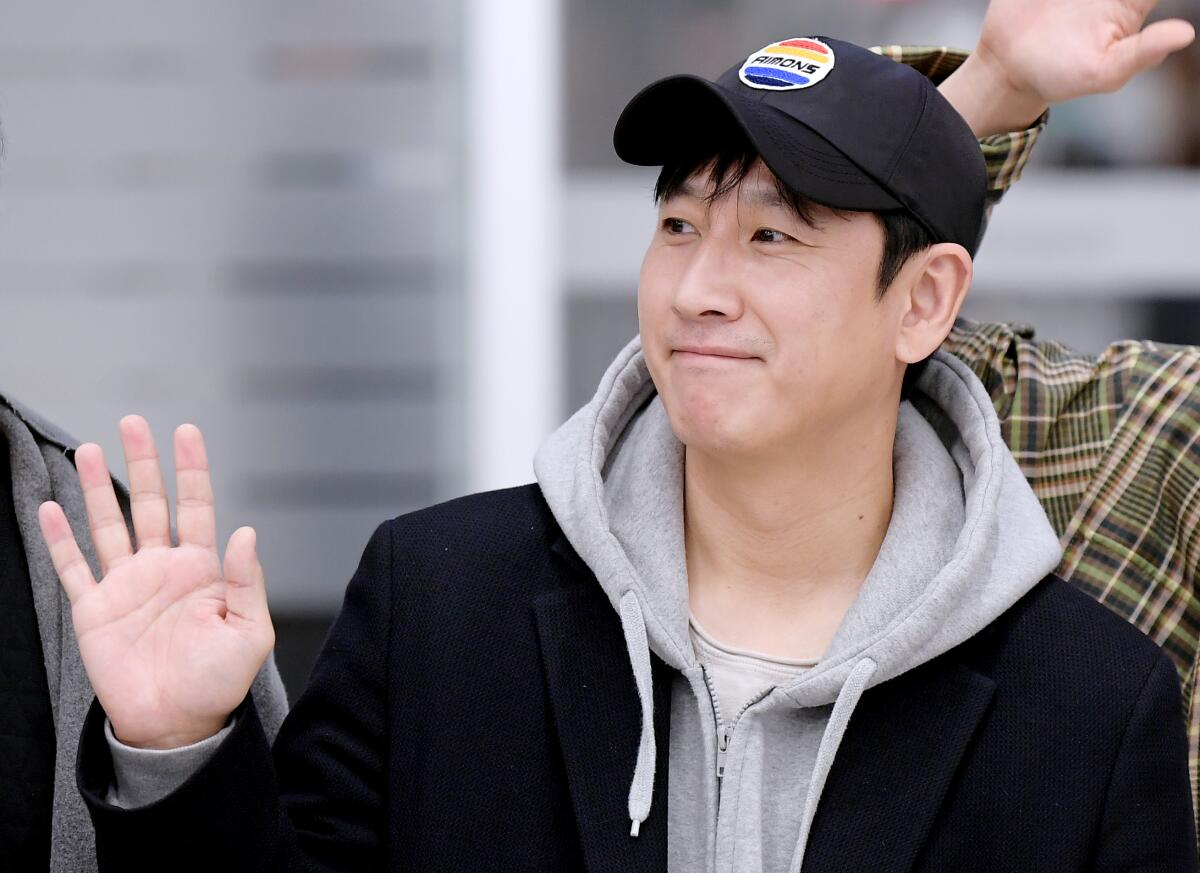
According to police reports obtained by broadcaster MBC, her recollection of which dates this happened shifted repeatedly before detectives finally zeroed in on four specific days between October 2022 and June 2023.
Lee made a surprising counter-allegation, claiming that Kim had extorted $225,000 from him, while another blackmailer — later revealed to be Park — had resorted to extortion as well, to the tune of $37,000.
In South Korea, law enforcement authorities are barred from disclosing the identities of suspects under criminal investigation or allowing suspects to be recorded on video or photographed by the media. But by the time Lee was summoned by the police in late October, a regional newspaper, quoting an anonymous Incheon police source, had already broken the news about the investigation, setting off a maelstrom of coverage. “Lee Sun-kyun drug allegations create shock waves,” read a typical headline. “Damage expected to reach fellow actors and production staff.”
A judge on Thursday signed off on an agreement that would essentially allow Charles Lynch’s record to be wiped clean in 72 days.
At the front of the station, a wall of reporters greeted Lee, who appeared tense and solemn — a sharp departure from his public image of clean-cut, jaunty wholesomeness.
“These sorts of A-lister celebrity drug scandals are almost unheard of in South Korea,” said Kim Hern-sik, a pop culture critic who has spoken about Lee’s case on national television. “And if you appear in the press like that, you’re automatically branded as guilty.”
As a local telecommunications company and vitamin manufacturer began pulling their advertising campaigns featuring Lee, questions circulated about who had tipped off the media about his trip to the station.
In a written statement, a spokesperson for police denied that they disclosed the date of Lee’s summons, adding that “we are in the process of ascertaining whether the source of the initial news report was from an internal leak.”
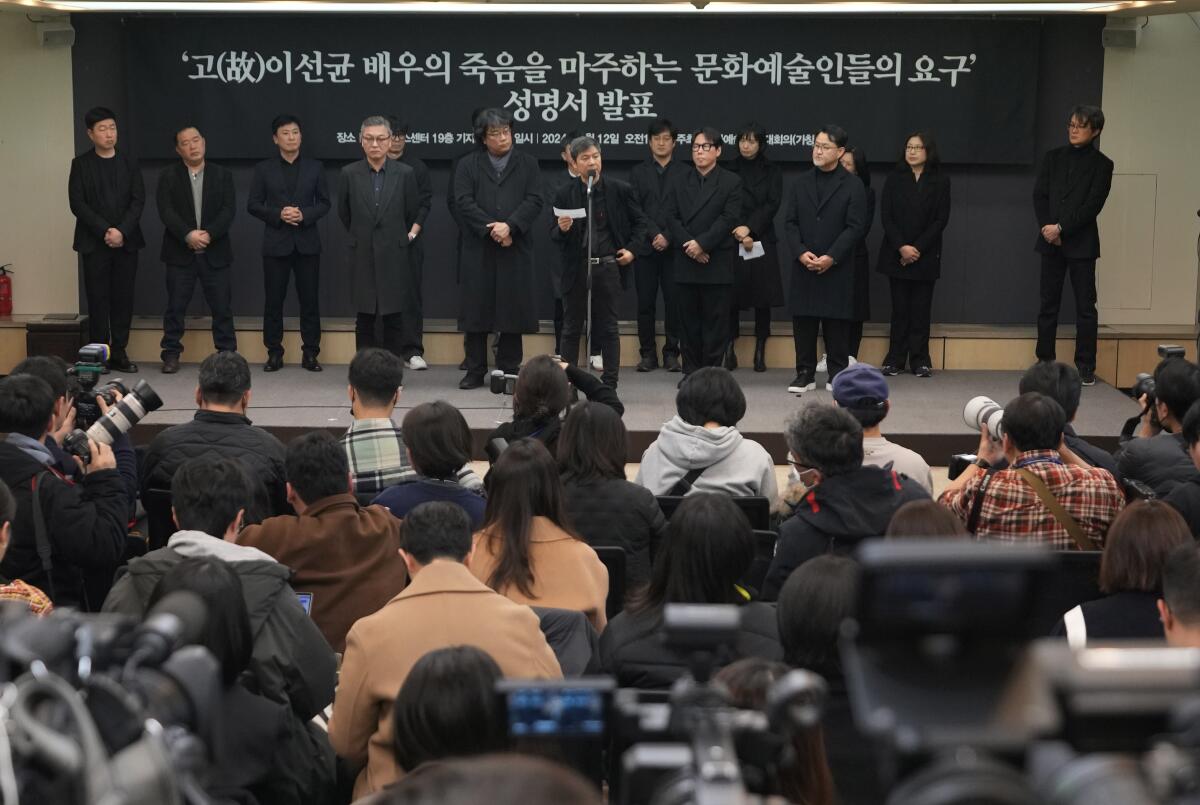
Law enforcement experts have also criticized the police’s handling of the early stages of their investigation.
“Establishing the basic facts, like the specific dates of the alleged drug use, or vetting the credibility of the accuser’s allegations — these are things that should have been done very early on, before Lee was summoned,” said Kim Hee-jun, a former narcotics investigator with South Korea’s prosecutors’ office.
“I’ve investigated plenty of celebrities in the past, but not once did I summon them publicly,” he said. “Once the suspect is revealed to be someone famous and there is an expectant atmosphere being created, it’s difficult to say ‘oh, we looked into it and there’s nothing there.’ It can sway the investigation toward prosecution.”
: :
Most of Asia has taken a hard stance against recreational drug use, and South Korea is no exception. Citizens can even be prosecuted for consuming drugs outside the country.
But things weren’t always this way.
Cannabis seeds were used in traditional Korean medicine, and as recently as the 1960s, marijuana could be found growing wild in the countryside, where farmers would sometimes smoke the leaves like tobacco.
Recreational marijuana use took root among the countercultural youth of the 1970s, associated with rock ‘n’ roll and American GIs, who called it “happy smoke.”
Responding to pressure from the U.S. military — which blamed locally grown marijuana for American troops getting high — as well as the dissident undertones of pot culture, the Park Chung-hee military dictatorship declared that the drug was corrupting the country’s youth and made cannabis offenses punishable by death.
The move to legalize psychedelics in California appears to be entering a new phase, with incremental steps to permit the drugs in therapeutic settings.
The regime’s anti-drug campaign featured a string of high-profile trials of celebrities, including Shin Joong-hyun, a guitarist known as South Korea’s “godfather of rock” who was tortured and institutionalized.
Marijuana use is no longer a capital offense, but the legacy of that era has endured. There are deep stigmas around drug use and widespread fears around the newfound availability of methamphetamine, MDMA and other drugs, which are sold on the dark web or anonymous messaging apps, paid for with cryptocurrency and delivered in contactless drop-offs.
A single dose of meth, which would have cost around $75 a few years ago, is now estimated to sell for as little as $15.
In April, the conservative administration of President Yoon Suk-yeol, a former prosecutor, launched a multi-agency narcotics investigation unit led by the Supreme Prosecutors’ Office, the most powerful law enforcement body in the country.
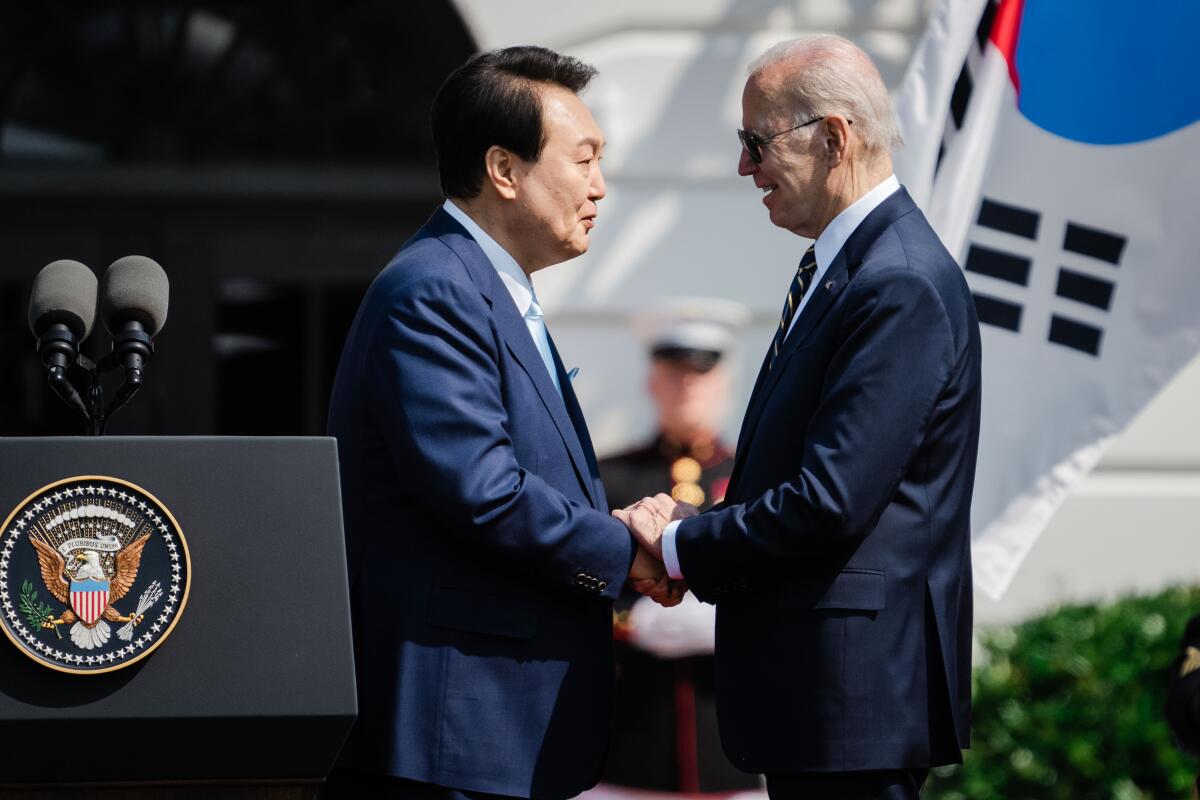
“The reason drugs used to be expensive in South Korea was the risk cost — if you were caught, your life would be ruined,” Justice Minister Han Dong-hoon said. “This administration is going to root out many offenders and will come down on them so hard that they will shriek.”
Police made 17,817 drug arrests last year, up from 8,107 in 2018, with teenagers and people in their 20s accounting for the biggest, sharpest spikes.
A survey by polling company Hankook Research in December 2022 found that almost 80% of South Koreans supported the drug war. A similar percentage associated drug use with “a lack of morals” and believed that, on top of the legal consequences, celebrities caught using drugs deserved to suffer additional social or economic fallout.
California has largely ignored the immigrant workers who harvest America’s weed. Their exploitation is one of the most overlooked narratives of the era of legal cannabis.
For law enforcement, the government has offered up clear incentives to score big wins.
In April, the country’s police chief announced “significant rewards” for the agency’s top performers — including special promotions for entire teams — calling for both major drug ring busts as well as awareness-raising efforts.
“That creates competition among narcotics departments and adds pressure to produce results,” said Kim Hee-jun, the former prosecutor. “And high-profile cases, like investigations into celebrities or famous corporate figures, are a prime example of these kinds of highly regarded performance outcomes.”
: :
Lee would have understood that drug scandals can torpedo careers long before a guilty verdict is even reached.
Fellow actor Yoo Ah-in, currently on trial on charges of using ketamine, marijuana and cocaine, is now widely regarded as persona non grata in the South Korean entertainment industry. Two movies and a Netflix series have indefinitely been put on hold, and he may also be on the hook for damages to advertisers for causing “social controversy.”
Lee was never arrested or charged, but between late October and late November, police gave him four drug tests, including hair tests said to detect drug use for up to a year.
One test was inconclusive and the rest were negative.
“If it had been a regular person, I think the case would have likely been closed right there,” said Kim Hee-jun, the former prosecutor. “It’s very difficult to prosecute a suspect without a positive drug test when the dates of alleged use fall within that detection window.”
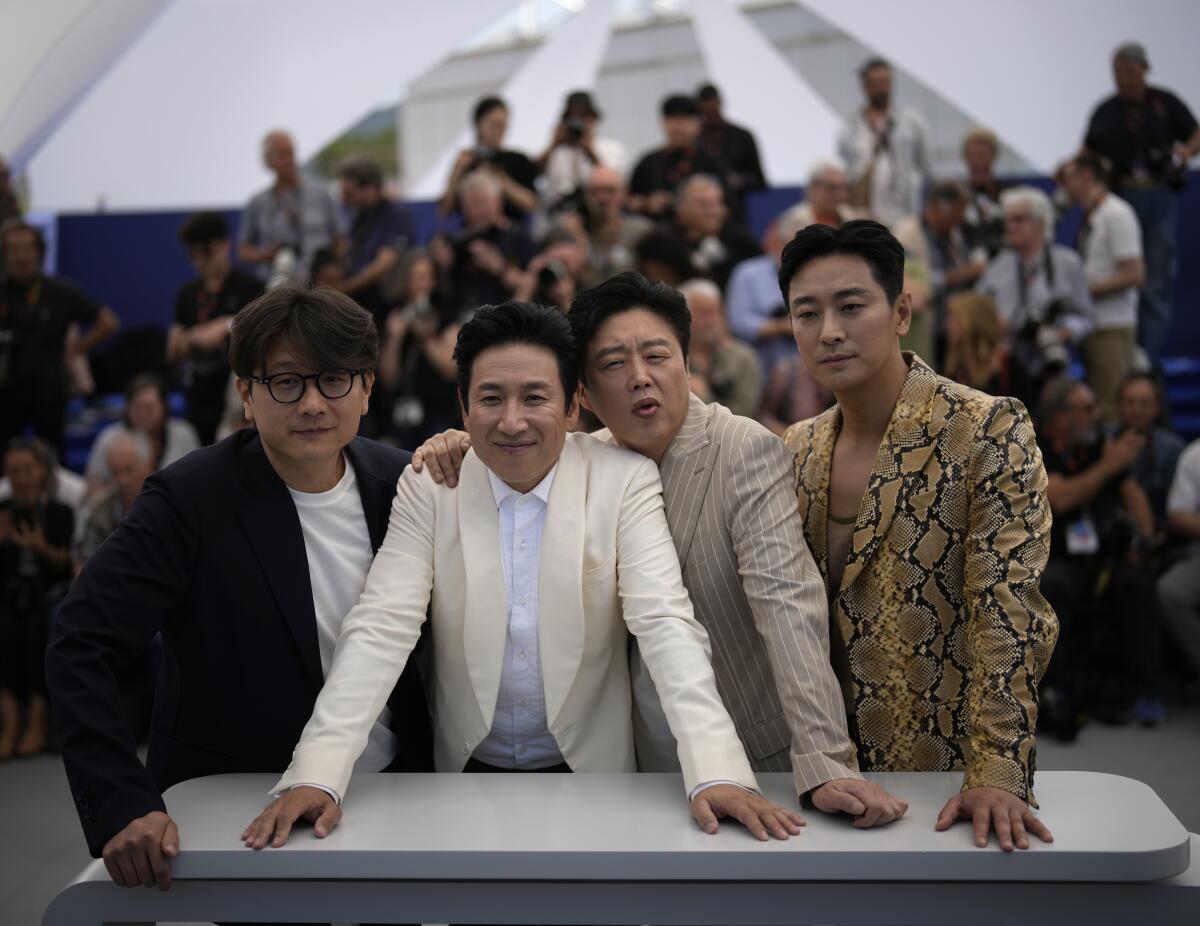
But the investigation of Lee remained open.
“We investigated the case according to standard protocols and the law,” the police department said in a written statement. “In determining whether a charge exists, drug investigations take into account not only testing results, but also testimonies of involved parties and forensic data.”
In late November, as newspapers began to question why the police were pushing ahead with the investigation with seemingly little evidence, the national broadcaster KBS released parts of a recording of a phone conversation between Lee and his accuser.
The two appeared to be flirting with each other. At one point, Kim steered the conversation toward drugs, in what some have interpreted as an attempt to get Lee to incriminate himself. Lee’s response was distracted and noncommittal.
Mennonites are pious Christians who eschew much of the modern world. But in Mexico even they have not escaped the pull of the drug cartels.
The source of the recording remains a mystery. Incheon police have acknowledged that it was filed as evidence but have denied leaking it.
Jang, Lee’s friend, believes that this recording was the compromising material used by Kim to extort Lee, who had a wife and two sons.
“Nobody really knows what the nature of their relationship was,” Jang said. “But he was a famous celebrity with a family, and I think the manager exploited that and the optics of the situation to extort him.”
Although KBS has defended its publication of the recording, others say the decision was the lowest point in what they regard as frantic, often prurient coverage of Lee. In two months, South Korean media published nearly 3,000 online news reports about Lee.
At a news conference held by Lee’s industry colleagues in early January, singer and music executive Yoon Jong-shin asked, “Can KBS say, on its honor as a public broadcaster, that the private conversation of the deceased, which had nothing to do with the allegations at hand, was really journalism in the service of the public interest?”
: :
Lee wasn’t the only target of his accuser. She also told investigators that Kwon Ji-yong, a famous musician known as G-dragon, had done cocaine at the bar she managed.
Police closed that investigation in mid-December after the musician passed his drug tests and his accuser admitted that she hadn’t actually seen him take the drugs.
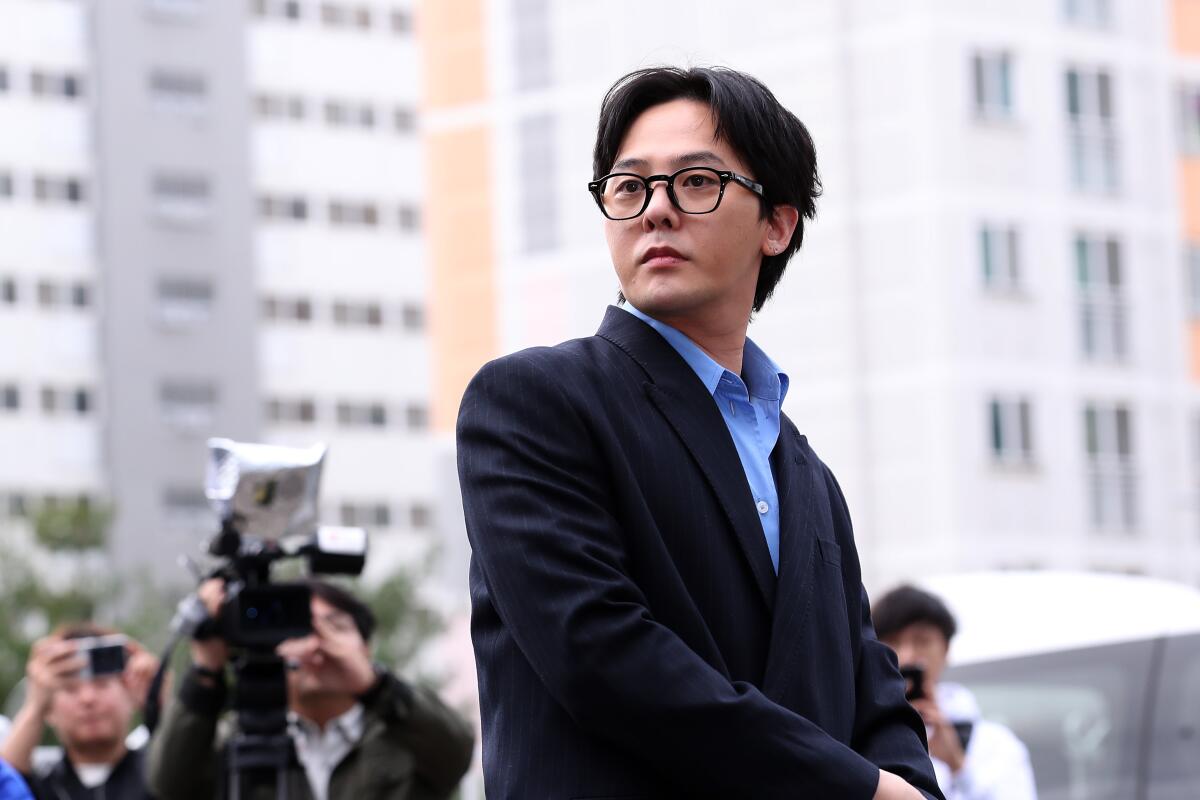
But the police were not done with Lee. On the morning of Dec. 23, he showed up at the Incheon police station for his third interrogation. Police denied a request from his lawyers that he be allowed to enter the building through an underground parking garage, so he had to walk through a throng of reporters.
Police said that the overnight interrogation was arranged with Lee’s consent in order to make enough time for questions related to the drug case as well as his extortion case.
Three days later, Lee asked for a polygraph test. But before it could be administered he was dead.
The Incheon police agency is being investigated for its potential role in the leaks about Lee’s case. Park and Kim, Lee’s accusers, are being tried on extortion charges. Kim is also on trial for allegedly taking meth and marijuana.
A coalition of entertainment industry figures, including “Parasite” director Bong Joon-ho, are now campaigning for strengthened privacy protections for subjects of law enforcement investigations.
South Korean content is likely to become even more important to Netflix it seeks to weather the Hollywood writers’ strike. But many writers and producers in the country feel exploited by the streaming giant.
“Ultimately, the attitude of the public needs to mature, to not expect celebrities to be like pure, blank sheets of paper,” Jang said. “But there is a need for some basic safeguard to prevent something like this from happening again.”
Jang remembered his friend as warm and kind, recounting how Lee liked to hype up his colleagues, rearranging seats at restaurants so a younger actor had a chance to shine.
Amid the tide of eulogies, some drug experts hoped that Lee’s death would begin to change the national conversation around the country’s punitive approach to drugs.
But that has not happened.
“Other countries have adopted a rehabilitation-focused model, but South Korea has not,” said Lim Sang-hyeon, the director of a drug treatment facility in Gyeonggi province. “The public still sees drug users as criminals or menaces to society rather than patients. And that’s because the enforcement of drug laws paints them that way.”
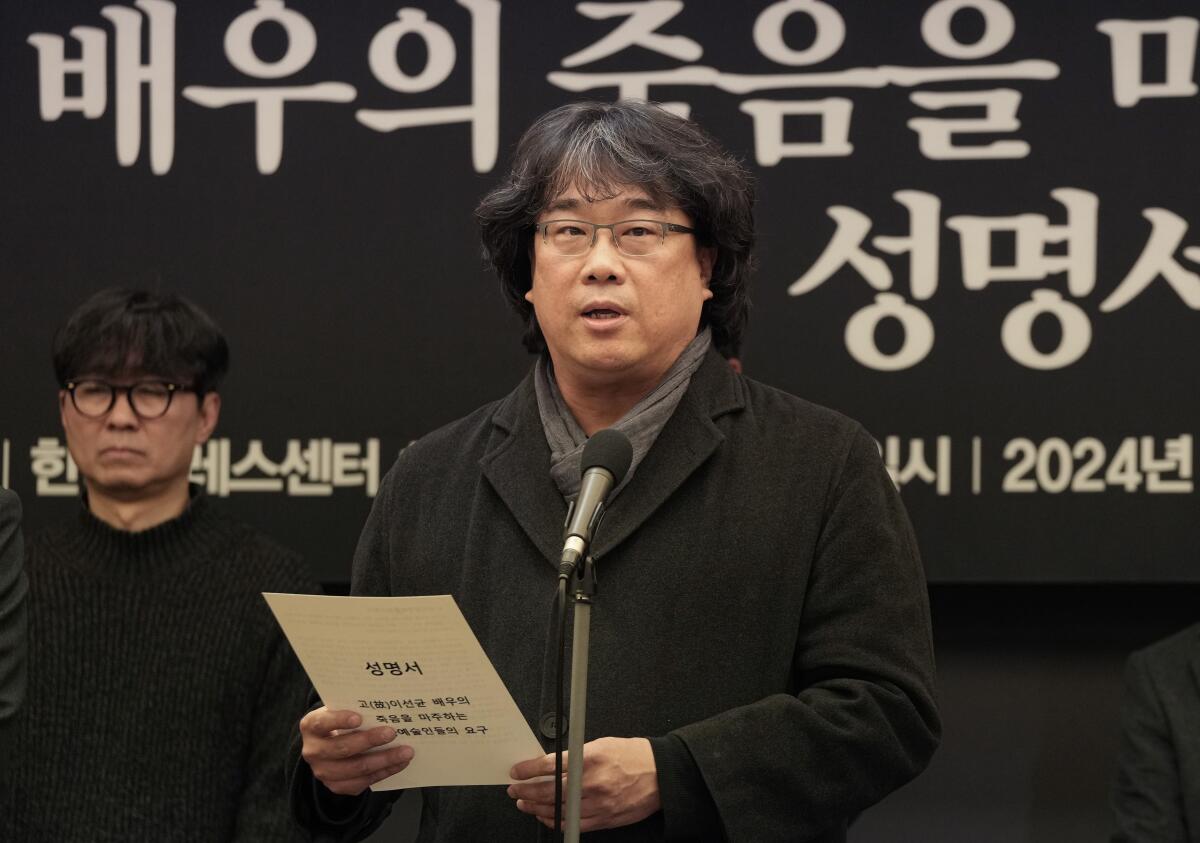
Kim Hee-jun said that the incident has at least raised questions that might eventually help inch public awareness forward.
“When I was a prosecutor, I myself only ever thought you needed to come down hard on drug users,” he said. “But over time, I saw the high recidivism rates, I sought out more information and came to see the issue in terms of not just crime, but also of disease and addiction.”
In January, he published a book that aims to demystify teenage drug use. An exonerated G-Dragon agreed to write the foreword.
“Prejudice stands in the way of healing and change,” he wrote. “To fix the heart of the problem, we must begin with prevention and positive education rather than law and punishment.”
More to Read
Sign up for Essential California
The most important California stories and recommendations in your inbox every morning.
You may occasionally receive promotional content from the Los Angeles Times.
